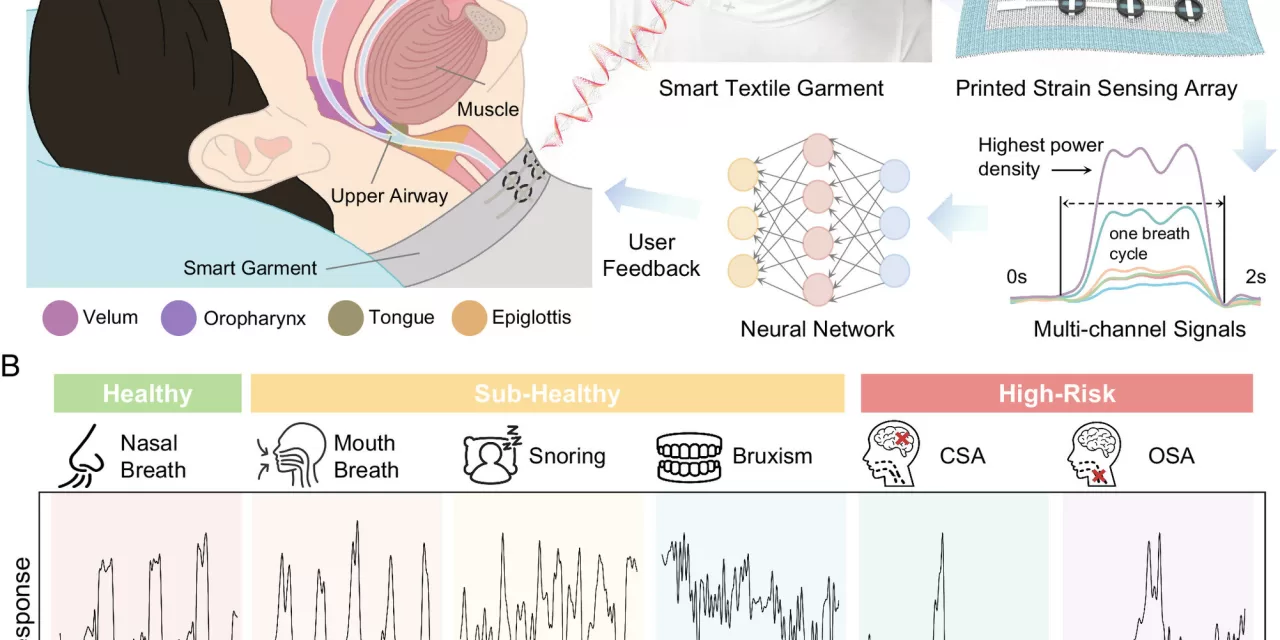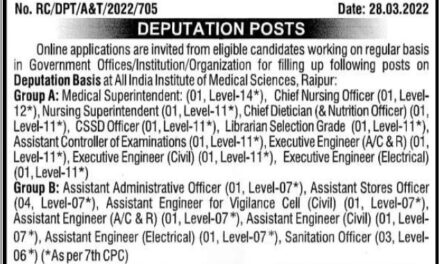In a groundbreaking advancement, researchers from the University of Cambridge have developed comfortable, washable “smart pajamas” designed to monitor sleep disorders such as sleep apnea at home. This innovation eliminates the need for sticky patches, cumbersome equipment, or visits to specialist sleep clinics.
The research team engineered printed fabric sensors capable of detecting minute movements in the skin, even when the pajamas are worn loosely around the neck and chest. These sensors, trained with a lightweight artificial intelligence (AI) algorithm, can identify six different sleep states with an impressive accuracy of 98.6%, effectively distinguishing regular sleep movements from disordered sleep patterns.
According to the researchers, the smart pajamas could be a game-changer for millions of individuals in the U.K. suffering from disordered sleep. By providing a convenient and efficient way to track sleep quality, these pajamas may also help users understand the impact of lifestyle changes on their sleep patterns. The study has been published in the Proceedings of the National Academy of Sciences.
The Importance of Sleep Monitoring
Sleep plays a crucial role in maintaining overall health, yet more than 60% of adults experience poor sleep quality, which can result in the loss of 44 to 54 working days annually and contribute to a 1% reduction in global GDP. Disruptive sleep behaviors such as mouth breathing, snoring, and sleep apnea can lead to severe health issues, including cardiovascular disease, diabetes, and depression.
Professor Luigi Occhipinti from the Cambridge Graphene Center, who led the study, emphasized the significance of accurate sleep monitoring. “Poor sleep has huge effects on our physical and mental health, which is why proper sleep monitoring is vital. However, the current gold standard, polysomnography (PSG), is expensive, complicated, and not suitable for long-term home use.”
Advantages Over Existing Sleep Monitoring Devices
Traditional home sleep tests are often bulky and uncomfortable, while wearable devices like smartwatches can only infer sleep quality without providing accurate disorder monitoring. The Cambridge team sought to create a solution that is both comfortable and highly precise.
Building on their previous research on smart chokers for speech-impaired individuals, the team redesigned graphene-based sensors for breath analysis during sleep. These improvements increased the sensitivity of the sensors, allowing them to detect different sleep states while filtering out normal sleep movements. Importantly, the garment does not need to be worn tightly around the neck, making it more comfortable for users.
The researchers developed a specialized machine learning model called SleepNet, which processes signals from the sensors to recognize various sleep states, including nasal breathing, mouth breathing, snoring, teeth grinding, central sleep apnea (CSA), and obstructive sleep apnea (OSA). By optimizing the AI model, the team reduced computational complexity, allowing the sensors to function independently without needing an external computer or server connection.
Testing and Future Applications
The smart pajamas were tested on both healthy individuals and those with sleep apnea, demonstrating an accuracy rate of 98.6%. Additionally, a special starching treatment enhanced the durability of the sensors, enabling them to withstand regular washing. The latest version of the pajamas features wireless data transfer, allowing sleep data to be securely transmitted to a smartphone or computer.
“Reliable sleep monitoring is key in preventative healthcare,” said Professor Occhipinti. “Since this garment can be used at home rather than in a hospital or clinic, it can alert users to changes in their sleep patterns, which they can then discuss with their doctor.”
The researchers are exploring potential applications of this technology beyond sleep monitoring. They are in discussions with patient groups to adapt the sensors for various health conditions and home uses, such as baby monitoring. Efforts are also underway to enhance the sensors’ durability for long-term use.
Disclaimer:
While smart pajamas offer a promising advancement in sleep monitoring, they are not a replacement for professional medical diagnosis or treatment. Users experiencing chronic sleep disturbances or related health concerns should consult a qualified healthcare professional for a comprehensive evaluation.












